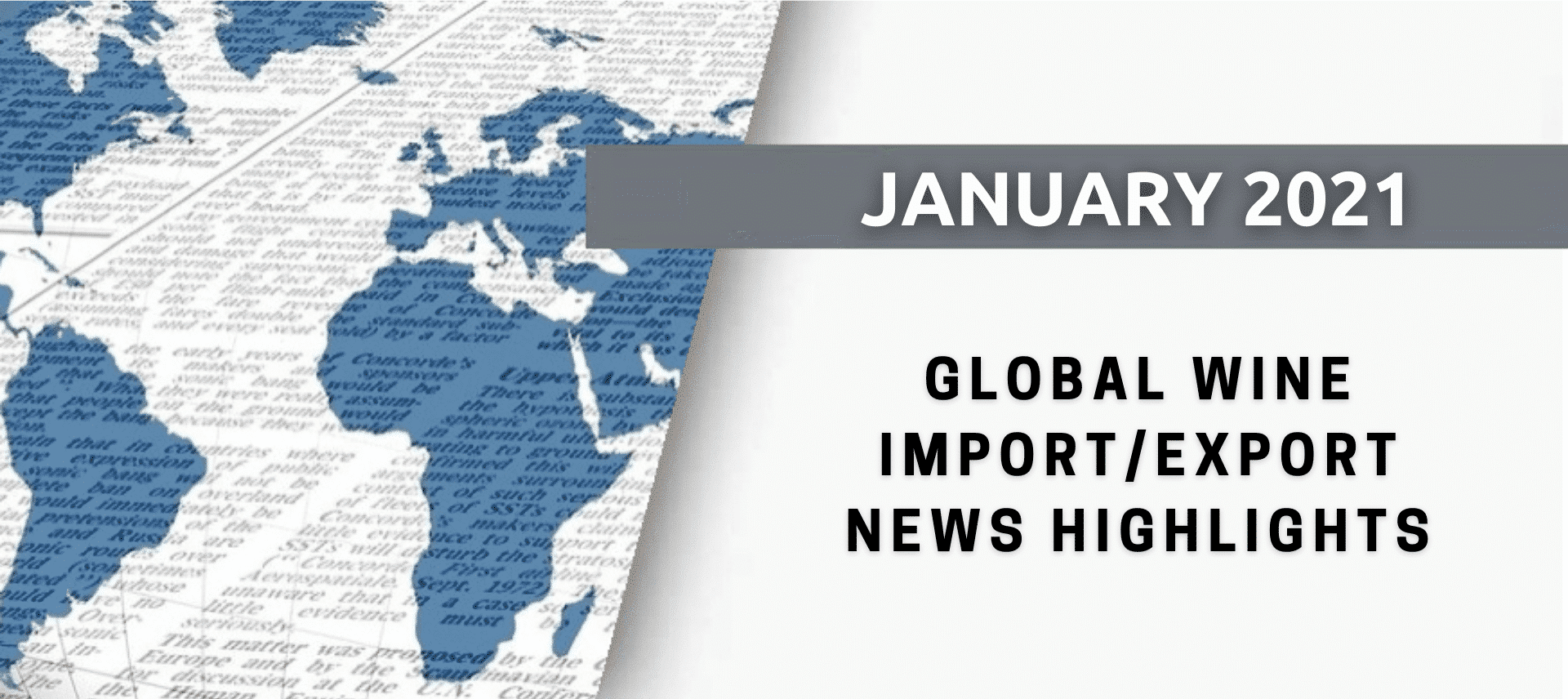

The wine industry turns a new leaf, leaving behind a tumultuous year, one of a health crisis, lack of free circulation, and financial damages among countless others. There`s much to see in the world of wine in 2021, as the recent news show it, notably since many challenges of today are still intertwined with the past. It is imperative for wine importers and people working in the wine world, to stay informed about the situation of the wine industry, both locally and international. For this reason, the start of the year is a great time to sit back and catch up with the overview of the wine trading industry around the world, to be prepared for what`s to come.
South Korean wine imports hit a record high in 2020
South Korea’s wine imports rose to a record high in 2020 despite the Coronavirus outbreak. As a nation with a considerable drinking culture in its free time as well as at a business level, the aftermath of lockdown and restrictions triggered a rise in people drinking wine at home. The main market driver seems to be women and young consumers who prefer a cosmopolitan lifestyle where grape wine is fancied over traditional drinks.
According to the data presented by the Korean Customs, in 2020, the volume of wine imported to South Korea was 38.969 million tons, amounting to US$239 million, breaking the 2019 record of US$204 million. In 2020, South Korea imported massive amounts of wine from Chile, France, Italy, Spain, the US, or New Zeeland. Although not mature yet, the Korean wine market is following a positive trend of growth, compared to the 190 million U.S. dollars worth of wine imported to South Korean back in 2015.
Serbia introduces restrictions on wine imports
More than half of the wine sales in Serbia come from wine imports, as the country is part of the European countries with scarce vineyard area. However, as of 1st of January 2021, a new Government decision was adopted, bringing new standards regarding buying wine originating in the European Union at a preferential rate as well as restrictions on the quantity of wine, a wine importer can buy.
Wine importers and distributors in Serbia must now comply to an annual ration of 625,000 litres per quarter, and pay customs charges for any addition beyond this limit. Any unused quantity in the quarter can add up to the quantity of the next quarter. The new regulations seem to come in aid for Serbia to develop its own wine production in the future.
Brexit`s effects on wine import
Brexit is entangling UK wine imports in the red tape. Since Brexit became official on the 1st of January, new rules and standards are challenging wine importers and exporters. Both British wine importers and foreign wine exporters that supply the country face a nervous start to trade post-Brexit, being concerned about these new measures and uncertainty about their effects and duration.
The new importing system requires doubled paperwork and increased customs costs with new certifications and declarations required, a measure that also creates concerning delays in trade. Customers will also have a reduced selection range and will have to dig deeper in their pockets when purchasing many European wines, as post-Brexit bureaucracy could add around £1.50 to the price of a wine bottle.
South Africa’s wine industry is at risk
Wine sales around the globe have declined as an outcome of the coronavirus pandemic but few countries faced such difficulties as South Africa. Since the start of the outbreak, the nation`s government has set up regulations and curfews as well as an on and off ban of trade and domestic sales of alcohol to aid the pressured health system in reducing alcohol-related hospital visits and reckless behaviour that contributes to virus transmission.
The resulting decline in tourism and hospitality income, as well as the inability to export lead to many job cuts for people working in the wine industry, as well as great struggle for businesses that have not already failed, trying to make ends meet. Although wine workers understand healthcare comes first, they are also upset and worried about the situation and proposed to minimise risks by asking for limitations instead of an alcohol trade ban.





